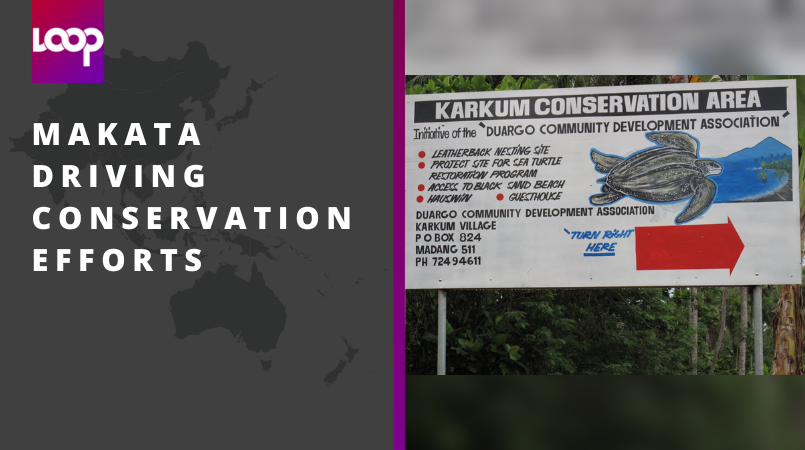
Mas Kagin Tapani, MAKATA, is a registered not-for-profit advocacy group established in April 2009.
The main reason for its establishment was to sustain the Sea Turtle Restoration and Protection Project (STRP) which was established in 2006 in Madang by Wenceslaus Magun.
Mr. Magun, the current project coordinator for MAKATA was then contracted by Turtle Island Restoration Network (TIRN), a 501c3 non-profit organization in US as their Western Pacific Campaigner.
MAKATA aims to prevent the loss of endangered sea turtles is sustained.
It also aims to support local communities manage and sustain their cultures, food sources, marine habitat, eco-systems, and biodiversity as it strives to balance conservation outcomes with alternative livelihood options.
To achieve this, MAKATA aims to sustain STRP’s initiative by establishing an enabling environment for marine and near-shore resource management plans through the resource owners.
Part of this exercise involves the establishment and management of “Community Managed Marine Areas” (CMMAs), so legal rules apply to their management as well as the bodies in charge of managing them using a Conservation Deed (CD).
At the moment Mr. Magun is still in Port Moresby awaiting his grants from USAID Lukautim Graun Program, UNDP Small Grants Program and other various donors for his projects. Once he receives them he is looking forward to coming back to Madang to continue his projects.
According to Mr. Magun the activities to roll out are;
Phase 1:
- Community entry by Mr. Magun and RERCF representatives to conduct awareness on this project in Kaviak and Kaul 3 (Karkar Island) and get consent from ward members and resource owners.
- NRMA plan using conservation Deed awareness by a lawyer and Mr. Magun
- Sewing training at Kaul 3 and Kaviak
- Socio-economic study by Divine Word University staff and students or private consultants
- Boundaries mapping from road to sea areas excluding land boundaries to avoid tussle on land boundaries and conflicts with neighboring villages
Phase 2:
- Restoration of Seagrass by University of Goroka staff and students
- Draft Conservation Deed by lawyer with inputs from UoG and Kaul 3 community
- Coral restoration
- Draft Conservation Deed by lawyer with inputs from Mr. Magun or UoG and Kaviak communities
- Lawyer presents NRMA plan and Conservation Deed to Kaviak and Kaul 3 communities for vetting
- Launching of NRMA-CD for Kaviak and Kaul 3
- Monitoring and Evaluation
Phase 3:
- Project documentation and reporting
Since the establishment of MAKATA, Mr Tapani has been doing all he can to ensure that his conservation efforts create a positive impact in the communities he is currently working on. His institution believes that an informed and educated community will take active roles and be prudent guardians of their resources.
Other initiatives under his establishment is the Participatory Community Journalism Training supported by renowned Journalist Scott Waide and Divine Word University, other community development initiatives and a policy and regulatory draft and law on sand mining.
